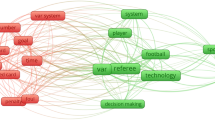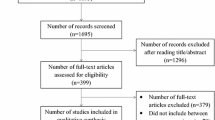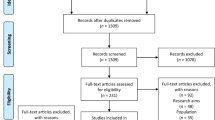Abstract
In this paper we propose a Bayesian methodology for predicting match outcomes. The methodology is illustrated on the 2006 Soccer World Cup. As prior information, we make use of the specialists’ opinions and the FIFA ratings. The method is applied to calculate the win, draw and loss probabilities at each match and also to simulate the whole competition in order to estimate classification probabilities in group stage and winning tournament chances for each team. The prediction capability of the proposed methodology is determined by the DeFinetti measure and by the percentage of correct forecasts.
Similar content being viewed by others
References
Brillinger DR (2008). Modelling game outcomes of the Brazilian 2006 series a championship as ordinal-valued . Braz J Probab Stat 22: 89–104.
DeFinetti B (1972). Probability, Induction and Statistics . John Wiley: London.
Dyte D and Clarke SR (2000). A ratings based Poisson model for World Cup soccer simulation . J Opl Res Soc 51: 993–998.
Everson P and Goldsmith-Pinkham P (2008). Composite Poisson models for goal scoring . J Quant Anal Sports 4:.
Ibrahim JG and Chen MH (2000). Power prior distributions for regression models . Stat Sci 15: 46–60.
Karlis D and Ntzoufras I (2009). Bayesian modelling of football outcomes: using the Skellam's distribution for the goal difference . IMA J Mngt Math 20: 133–145.
Keller JB (1994). A characterization of the Poisson distribution and the probability of winning a game . Am Stat 48: 294–298.
Lee A (1997). Modeling scores in the Premier League: Is Manchester United really the best? Chance 10: 15–19.
Percy DF (2002). Bayesian enhanced strategic decision making for reliability . Eur J Opl Res 139: 133–145.
Volf P (2009). A random point process model for the score in sport matches . IMA J Mngt Math 20: 121–131.
Acknowledgements
The authors are grateful to the referees who pointed out many interesting issues which have enabled a substantial improvement of this paper. This work has received financial support from CNPq and CAPES.
Author information
Authors and Affiliations
Corresponding author
Appendices
Appendix A: Useful results
Result 1
-
If X|λ∼ Poisson (λ c),c>0, and λ follows a Jeffreys prior given by π(λ)∝λ −½, then λ|X=x∼ Gamma (x+½,c).
Proof
-
The result follows immediately from

Result 2
-
If X|λ∼ Poisson (λ c),c>0, and λ∼ Gamma (α,β), then the marginal distribution of X is a negative binomial distribution with parameters α and
 .
.
Proof
-
From the hypothesis above we have

Hence, the marginal distribution of X is given by

Appendix B: FIFA ratings
See Table B1.
Rights and permissions
About this article
Cite this article
Suzuki, A., Salasar, L., Leite, J. et al. A Bayesian approach for predicting match outcomes: The 2006 (Association) Football World Cup. J Oper Res Soc 61, 1530–1539 (2010). https://doi.org/10.1057/jors.2009.127
Received:
Accepted:
Published:
Issue Date:
DOI: https://doi.org/10.1057/jors.2009.127






 .
.
